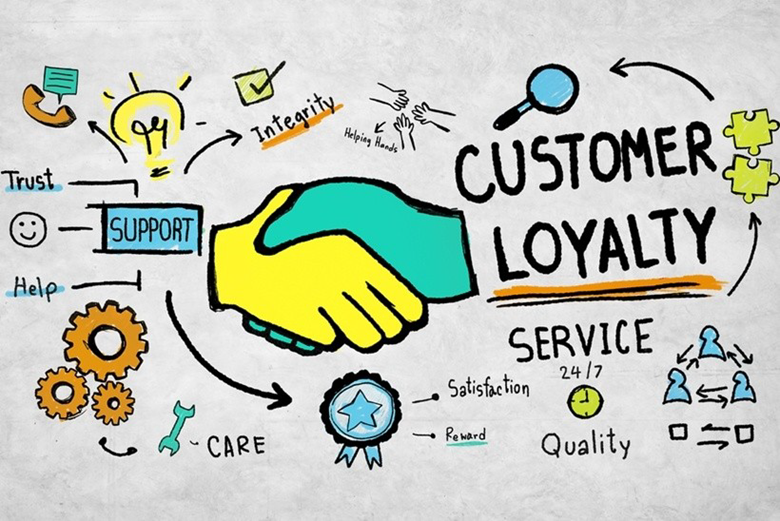By Ibidunni Banjoko
The customer-product/brand relationship has evolved over the years. The desire of every dedicated marketer is to turn prospects into loyal customers. To get to this point, however, the prospect would have to be moved along the marketing journey – from a customer to an engaged customer, until he finally becomes a loyal customer.
These days, customers look beyond just satisfaction. They desire a relationship bothering on friendship with their brands. We live in the information and globalised world where consumers are interconnected and share information at the speed of light. Building a business therefore goes beyond simply selling a product. It’s no secret that many consumers now seek to build relationships with brands and serve as important conduits for new business by referring friends and family. When a business is able to become this intimate, such is said to have effectively engaged the customer.
According to a recent study from Deloitte Digital, brands that prove to be more than just a name to consumers and form lasting emotional bonds are the likeliest to have staying power. The study found that appealing to a consumer’s emotions based on four key elements – connection, data boundaries, consistency and loyalty – has a direct correlation to a brand’s customer retention rate. In yet another study by Motista, consumers that have an emotional connection to a brand have a 306% higher lifetime value to that brand, purchasing from them for an average of 5.1 years over the average purchasing lifetime of 3.4 years, and will recommend the brand they have the feels for 71% of the time, over the average recommendation rate of 45%.
How does a brand create and nurture this all-important emotional connection with its consumer base? Andrew Witkin, President, building StickerYou, advises thus:
Think of your brand as a person: Think about a person in your life that you admire and respect. What qualities do they have? Chances are, this person is reliable, has strong values and makes efforts to adhere to them, treats others well, admits when they make mistakes and tries to make amends when possible. All of these qualities make for good people, and they also make for good brands. Consider how your brand operates publicly as its personality – the better the personality, the more popular the brand and the higher the levels of customer engagement.
Share your origin story and company vision: When first forging a relationship with a new friend or acquaintance, one of the first things that people do is share information about themselves, helping to establish a base for the friendship by giving context to themselves and what has made them into the person they are today. Things like hometown, school experiences, and travel experiences are more than just polite small talk. These topics are social signifiers, and also can give a sense of your values and personal choices. Brands are no different. People connect with narratives and stories as these aid memory and understanding and context. A brand’s origin story can be a powerful emotional driver that helps people engage emotionally with the brand. Merkle and Levo report that 47% of millennial women know their favorite brand’s origin story, 41% know who founded the brand, and 40% follow the founder or someone affiliated with the brand on social media. Consider the origin story of legendary companies such as Apple, and how they underscore certain values that the company holds. What values does your brand origin story highlight?
The psychology behind your brand: Having a distinct company vision and a set of ethical guidelines or a powerful motto will also serve you well when establishing a real emotional connection with consumers. In today’s environment, when people are feeling like they have less control over the systemic and political elements that govern their lives, taking back some semblance of control by putting their dollars into a company that reflects what they themselves believe is a powerful motivator.
Treat your employees well: Today’s world is hyper-connected, and you should assume at least some of your employees discuss their work lives online. Brands that treat their employees dishonorably by underpaying or overworking them, or engaging in other kinds of toxic behavior, can expect these experiences to be reflected online. And this can have a potentially detrimental effect on brand loyalty, and ultimately sales. A study from Morning Consult concluded that 70% of millennials would buy less from a brand they are loyal to if they found out the brand doesn’t pay employees well, while 69% would buy less if they learned the brand relies on unethical labor practices. In order to build brand loyalty with a consumer base, treating employees fairly is key.
Be open and transparent: Running a successful company means hitting some bumps and snags along the way. Just as no person is perfect, neither is any company. Consumers understand this. While it may be instinctual to be tight-lipped about company processes, supply chains, and mishaps, it can pay to be open and honest instead. According to Sprout Social, when brands develop a history of transparency, about 90% of consumers said they are more willing to give brands a second chance after a bad experience, and 85% say they will stick with brands during a crisis when they are more transparent overall. Being upfront with consumers may feel risky, but this vulnerability can build increased loyalty when handled the right way.
It goes without saying therefore, that the quickest and most assured path to customer loyalty is through customer engagement. The real assessments of loyalty measure the emotional engagement between the consumer and brand versus the consumer’s perception of their category ideal, best defined as the degree to which a brand is able to meet the expectations consumers hold for their category Ideal.
The above is buttressed by stakeholders in the Nigerian IMC industry. According to Director Marketing and Communications, Sub-Sahara Africa, Mastercard, Ifeoma Dozie, “Loyalty has gone through transformation. The days, when we rely on consumers being loyal to brands are behind us. That is a notion of full illusion. We need to have different aspect when consumer thinks about loyalty, they think about purpose. They look for brands that really champion a particular cause and champion purpose they have passion for and relationships. So brands have to respond by appealing, convincing, converting and satisfying those to effectively engage.”
In the same vein, President, Association of Digital Marketing Practitioners, Uti Ukubeyinje said, “Consumer that you are dealing with now as a brand has three core needs based on their behavioral patterns. They want to be heard faster because there are a lot of other alternatives and if you don’t respond quickly they switch. They expect brands to know them better because they have shown a lot of data by just interacting on the internet.
“Their expectations are that ‘you as a brand should be smart enough to know me, deal with me, not just as some statistics but as an individual consumer’. They are also dealing with a single brand viewed from the internet perspective; there is a lot going on there not putting a particular bucket like, ‘oh, I am dealing with a telco, I will behave differently’. They expect the same experience across the board, they expect you as a brand to continue to wow them like the last brand they interacted with whether it is related to you or not.”






Comment
No comments found.